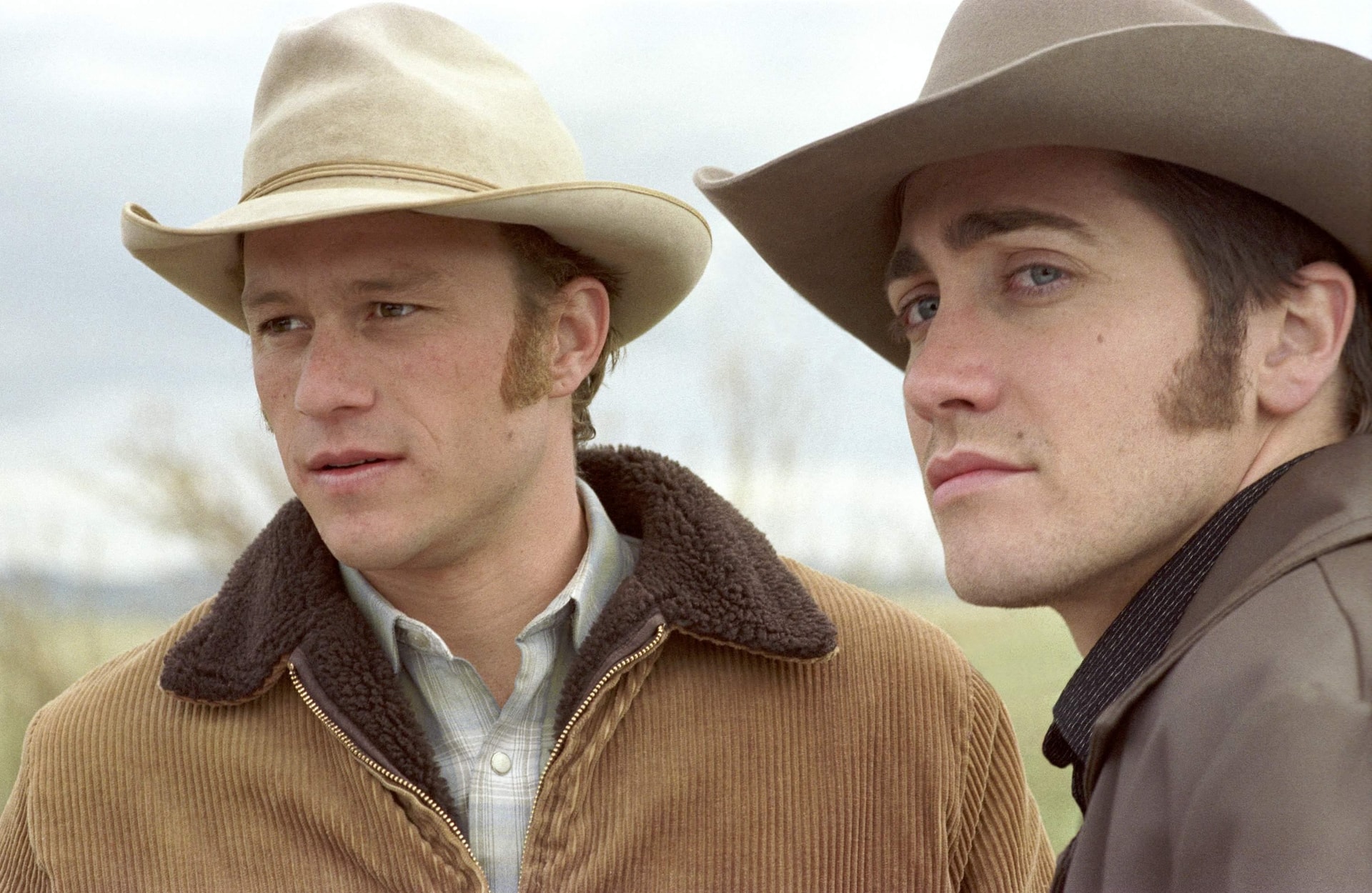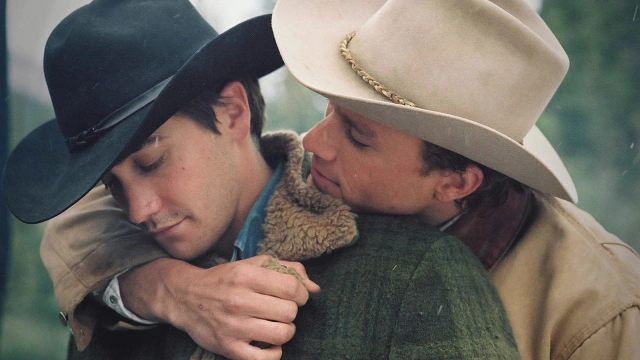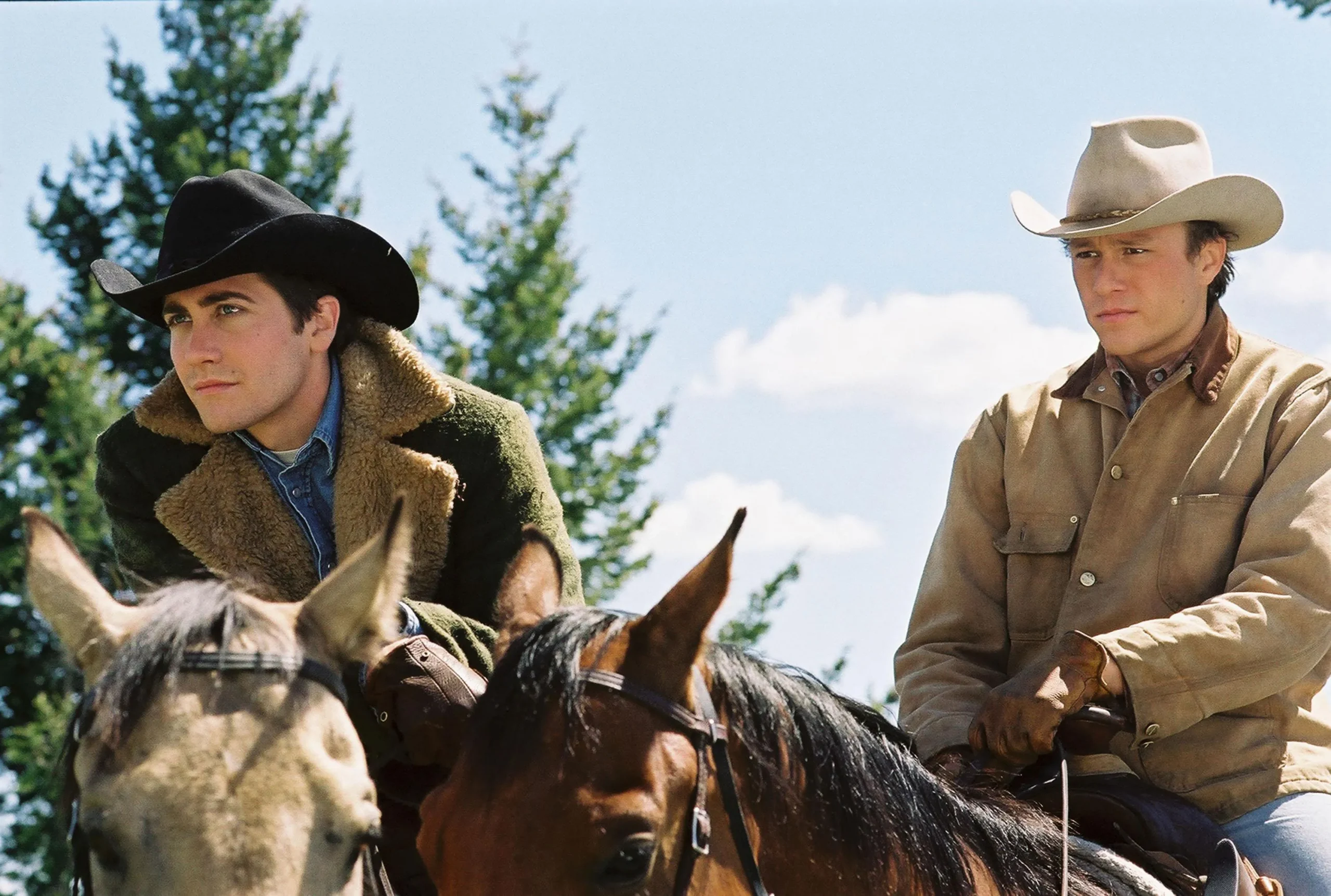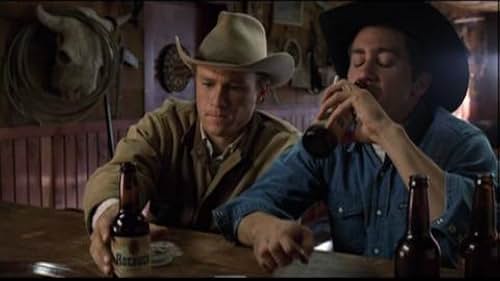Brokeback Mountain (2005)

Brokeback Mountain (2005) is a groundbreaking romantic drama directed by Ang Lee, based on the short story by Annie Proulx. The film explores the complex and tragic love story between two men in the American West, tackling themes of love, identity, and societal constraints. Widely acclaimed for its performances, direction, and emotional depth, the film became a cultural milestone in cinema.

Set in the 1960s and spanning two decades, the story follows Ennis Del Mar (Heath Ledger) and Jack Twist (Jake Gyllenhaal), two young cowboys who are hired to herd sheep on Brokeback Mountain during a summer in Wyoming. Amid the isolation of their work, they develop a deep and unexpected romantic connection.

After the summer ends, Ennis and Jack return to their separate lives—Ennis marries Alma (Michelle Williams), and Jack weds Lureen (Anne Hathaway). Despite their attempts to conform to societal norms, their love persists, leading to secret meetings over the years. However, the pressures of secrecy, fear, and societal judgment weigh heavily on their relationship, ultimately leading to a heartbreaking conclusion.

Ang Lee’s direction is masterful, combining intimate storytelling with breathtaking cinematography by Rodrigo Prieto, who captures the sweeping landscapes of the American West. The contrast between the vast openness of Brokeback Mountain and the claustrophobic lives of the characters underscores the tension between freedom and repression. The haunting, minimalist score by Gustavo Santaolalla enhances the film’s emotional resonance, earning him an Academy Award.

Brokeback Mountain received critical acclaim and won numerous awards, including three Academy Awards (Best Director, Best Adapted Screenplay, Best Original Score). While it controversially lost the Best Picture Oscar to Crash, it remains one of the most celebrated and influential films of the 21st century.
The film’s sensitive portrayal of same-sex love broke new ground in mainstream cinema, sparking conversations about representation and acceptance. Its impact transcends cinema, serving as a touchstone for LGBTQ+ storytelling and a reminder of the enduring power of love against all odds.